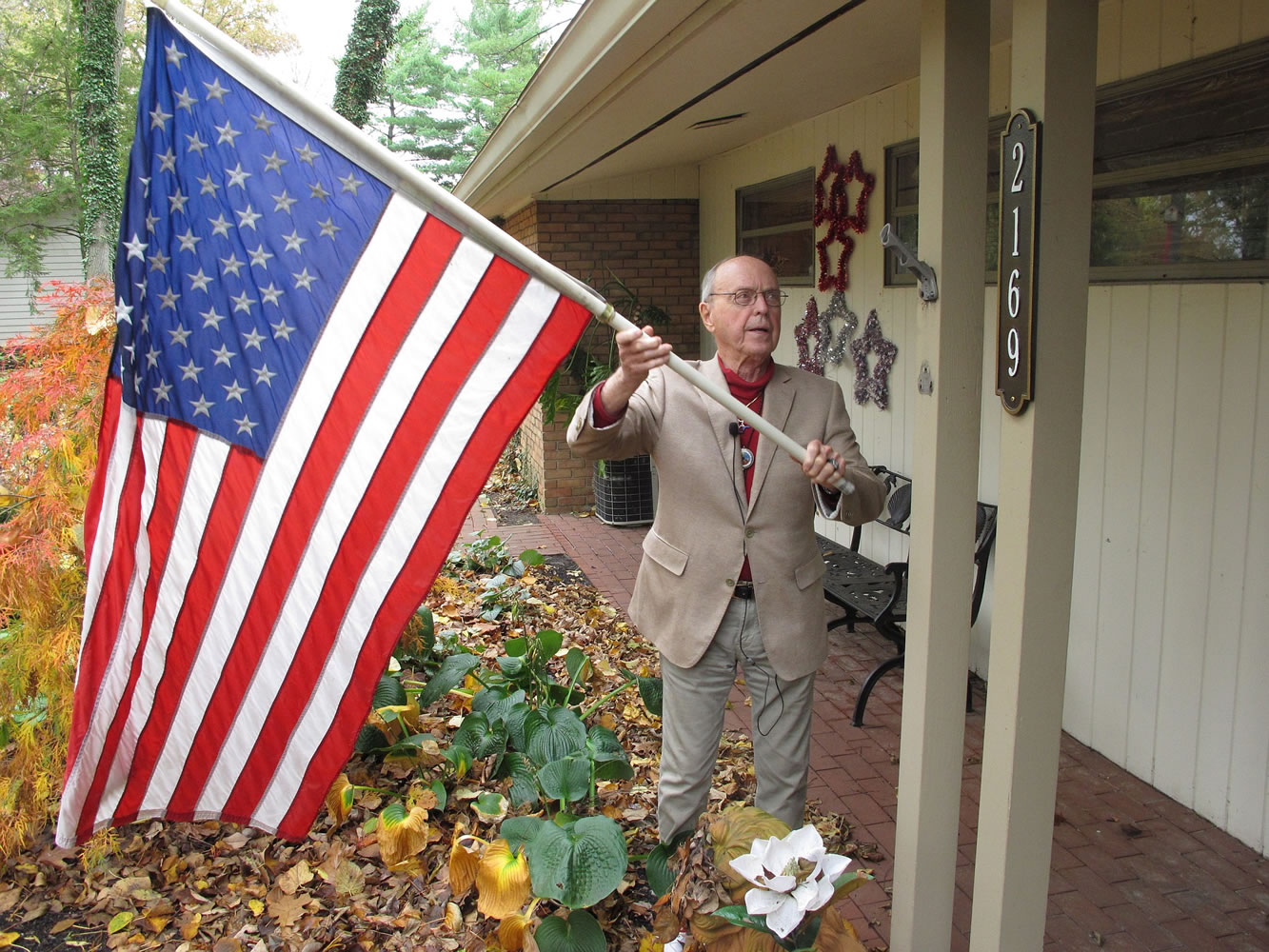UPPER ARLINGTON, Ohio — Like thousands of other young men in the 1940s, Rupert Starr joined the Army, fought overseas and saw his share of hardship, including several weeks as a German prisoner of war. He returned to Ohio with a Bronze Star for heroism and a secret.
Not until his service as a military man was needed again — as an activist against the Pentagon’s “don’t ask, don’t tell” policy — did Starr, who is gay, slowly step out of the closet.
Now 92 and still on the go, Starr — known universally by his family nickname “Twink” — is unabashed in his support for fellow gays in the service and love for his country.
“They were saying that you could not have the courage or the nerve to be in combat and you weren’t qualified then to protect your buddy, because you would give up, you’d fade or you’d die, you cry,” said Starr, who was honored this month at a Stonewall Columbus veterans event.
“Well, that’s not true,” he said. “And I can prove it.”
Starr majored in business at Ohio University where he joined ROTC. He enlisted in 1943 and graduated from infantry school as a second lieutenant.
Starr, a liaison officer with the 422nd Regiment of the 106th Infantry Division, was shipped overseas in October 1944, first to England, then to St. Vith, Belgium. He was returning to headquarters from a mission trying to establish a regiment’s whereabouts in the Battle of the Bulge when he and a sergeant were captured by Germans on Dec. 21, 1944.
Starr survived a series of harrowing travails as a POW, including eight days in a boxcar jammed far beyond capacity with other prisoners and forced marches in subzero weather, before finally arriving in a small German town where his captors fled ahead of the Russians in mid-February 1945. He arrived home in Boston on April 20, 1945.
Starr eventually became a well-known real estate agent and civic leader.
He met interior designer Allan Wingfield in a college bar near Ohio State in 1954, and they were together 53 years until Wingfield’s death in 2007.
In 2004, Starr met filmmaker Patrick Sammon, a member of Log Cabin Republicans, the nation’s largest GOP organization representing gays and lesbians. Sammon persuaded Starr to make a promotional video, “Courage Under Fire,” to be used in the effort to defeat “don’t ask, don’t tell.”
Log Cabin considered “Courage Under Fire,” given to every member of the U.S. House and Senate, an important part of its efforts to persuade Republicans to join the cause. The 1993 policy was eventually overturned in 2011.



